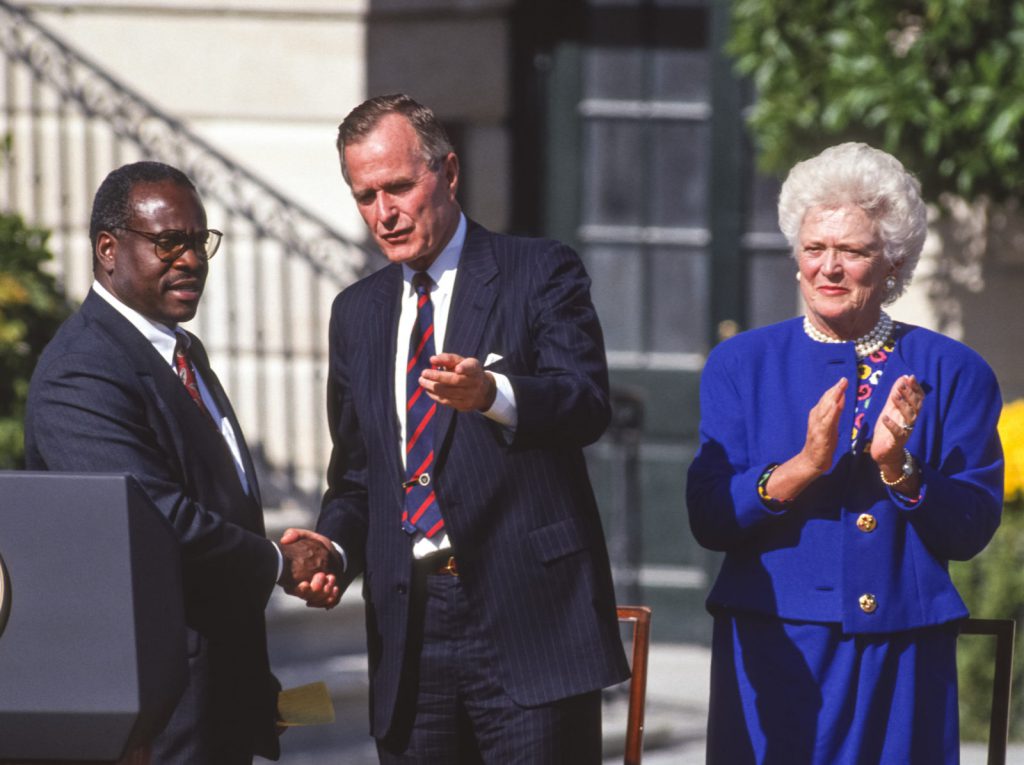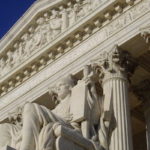
Published July 1, 2016
EDITOR’S NOTE: Today marks 25 years since President George H. W. Bush nominated Clarence Thomas to serve on the Supreme Court. In recognition of this milestone, NR asked friends and colleagues to weigh in on the justice and his legacy. Below is EPPC President Ed Whelan’s contribution to the symposium.
As a law clerk for Justice Scalia 25 years ago, I’m grateful to have been present at the beginning of Justice Thomas’s outstanding career on the Court. During a first term replete with high-profile contentious cases — including, most prominently, Planned Parenthood v. Casey — Justice Thomas might have been tempted to take cover and hide or even to try to find opportunities to curry favor with his detractors. Instead, in case after case he consistently displayed his fidelity to the Constitution and his moral courage, even as his enemies were falsely maligning him as Scalia’s puppet and viciously distorting his positions.
Over the course of his career, Justice Thomas has, together with Justice Scalia, been a powerful expositor of original-meaning jurisprudence, the central principle of which is that the various provisions of the Constitution (and of other legal texts) are to be interpreted in accordance with the meaning they bore at the time they were promulgated. He has stood steadfast against the, alas, still-dominant “living constitutionalist” approach, whose adherents invent and revise legal meaning on the fly to impose their own preferred policy preferences.
Originalism is not algebra, and although Justice Scalia and Justice Thomas most often reached the same originalist answer, there were some differences in their approaches. Perhaps most markedly, Justice Thomas has shown himself more willing to revisit supposedly settled questions and to apply his originalist thinking to those questions. In the process, he has built a remarkable corpus of work on a broad range of constitutional provisions, including the commerce clause, the First Amendment’s freedom of speech, and the 14th Amendment’s privileges or immunities clause. His separate opinions, both concurrences and dissents, stand as an enduring legacy.
Some critics claim that Justice Thomas’s commitment to principle has marginalized him and reduced his influence on the Court. I can see Justice Thomas rolling his eyes and asking what part of his oath of office these critics don’t understand. Why should he want to craft majority opinions for propositions he doesn’t believe? Doesn’t his vote count the same as that of any other justice? Why would he ever deliberately try to position himself as the swing vote?
Thank you, Justice Thomas, for your first 25 years of extraordinary service on the Court. I eagerly look forward to the next 25.
— Ed Whelan, the president of the Ethics and Public Policy Center, is a regular contributor to National Review Online’s Bench Memos blog.








